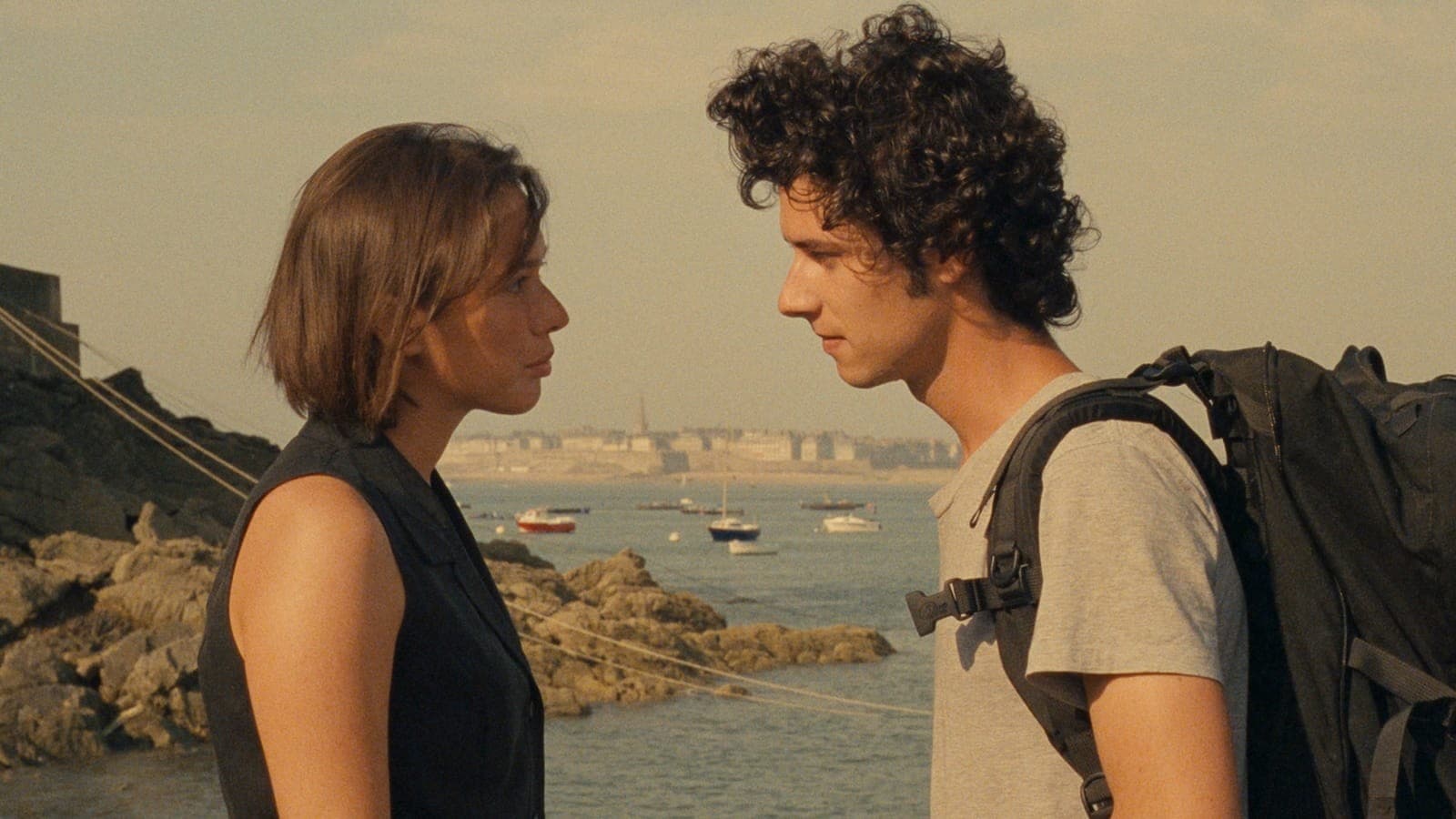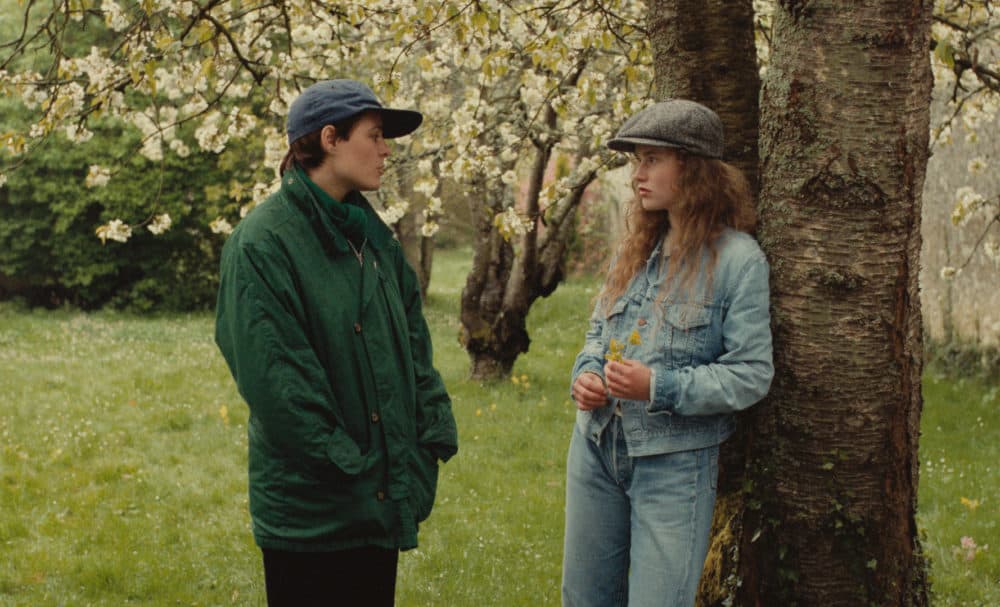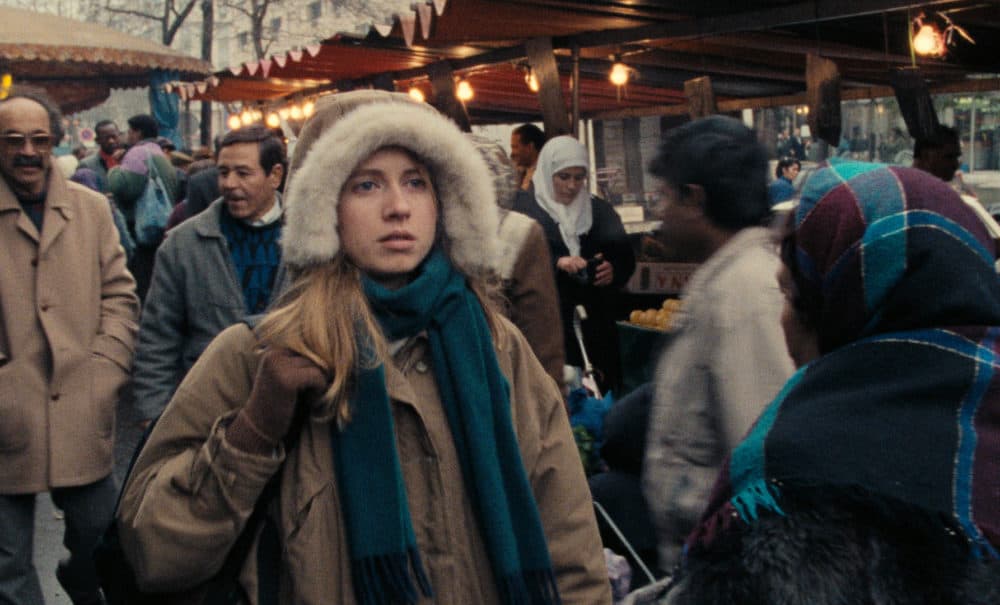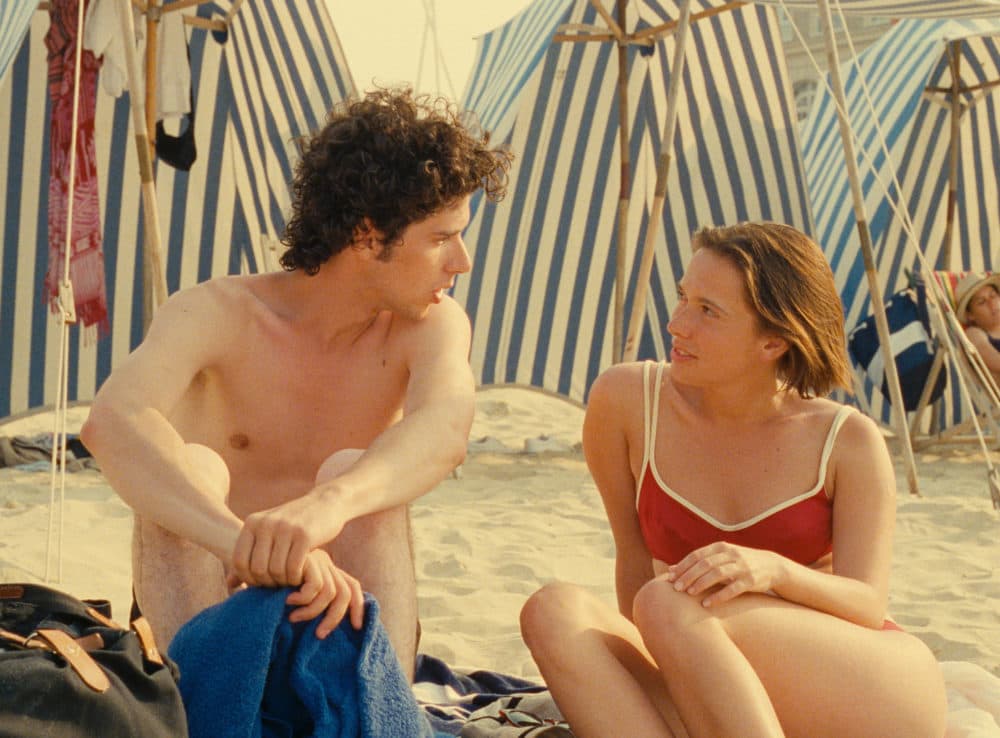Advertisement
Commentary
Coolidge Corner Theatre Streams Director Éric Rohmer's 'Tales Of The Four Seasons'

“I saw a Rohmer film once. It was kind of like watching paint dry,” scoffs Harry Moseby, the gruff private eye played by Gene Hackman in Arthur Penn’s classic 1975 neo-noir “Night Moves.” Indeed, it’s difficult to imagine the breezy, sophisticated entertainments of French New Wave legend Éric Rohmer appealing to a meat-and-potatoes ex-footballer like Harry. But the line pays dividends later when Moseby discovers he’s been fitted with the horns of a cuckold by his wife and an effete art dealer at a screening of Rohmer’s 1969 infidelity comedy “My Night at Maud's,” a sly twist of the knife in a movie about a detective too blinded by his own blustery machismo to solve a mystery that’s unraveling right under his nose.
You won’t find any tough-guy blowhards like Harry in the films of Éric Rohmer. These are gentle, classy pictures about well-educated people with impeccable manners. They know which wine pairs best with your fish, but precious little, as it turns out, about their own hearts. So they talk. Heavens, do they talk. Rohmer’s characters talk themselves around in circles, in and out of affairs. They construct elaborate excuses for doing what they feel like or make up ridiculous reasons why they won’t. In his 1970 “Claire’s Knee” — one of the director’s drollest films — our long-winded protagonist spends most of the second hour concocting an insane intellectual justification for his overwhelming desire to caress the knee of a teenage girl next door. Rohmer doesn’t judge these characters for their folly so much as he regards them with wry bemusement.
A novelist and critic from the Cahiers du Cinéma crew that included Jean Luc-Godard, François Truffaut and Jacques Rivette, Rohmer directed 20-something theatrical features and all sorts of television and shorts over a career that spanned 57 years. His style was less flashy and experimental than that of his peers, which is perhaps why it proved more durable at the box office over the long haul. Rohmer was still helming arthouse hits almost right up until his death in 2010 at the age of 89. He loved shooting cycles of films centered around similar themes, as with the “Six Moral Tales” that kicked off his career and “Comedies and Proverbs” in the 1980s. The director’s final film series, “Tales of the Four Seasons,” has just been beautifully restored (and in two cases, retitled) by the good folks at Janus Films. All four features start streaming this weekend at the Coolidge Corner Theatre’s Virtual Screening Room.

Rohmer was pushing 70 when he began the project, and these films exude the relaxed command of an old master. None of the storylines or characters overlap from movie to movie — you can watch them in any order you’d like — but they all include slight variations on recurring motifs of matchmaking, missed opportunities and what happens when lofty, abstract ideals about love have to compete with our more mundane reality. A practicing Catholic whose faith figured prominently (though not overbearingly) in his work, Rohmer favors chance encounters and crazy coincidences that might be explained by a higher power pulling some of these strings, but the movies maintain plausible deniability. Each of these “Tales of the Four Seasons” ends with a deus ex machina that could also just be good luck. Either way, there’s a sunny sense of fortune smiling upon these lovelorn fools.
The first and least essential in the cycle is 1990’s “A Tale of Springtime,” about a philosophy teacher (Anne Teyssèdre) striking up a fast friendship with a conservatory student (Florence Darel) who feels the former might make a good match for her dad. Like most divorcées in these movies, he’s currently dating a woman his daughter’s age, and the student’s clumsily transparent setup brings all four of them together at a country estate for a payoff that lacks the snap of farce but veers off somewhere potentially more interesting as the wised-up marks try to politely take control of an awkward situation. It’s enjoyable enough, but these ideas are explored with more finesse elsewhere in the series.

“A Tale of Winter” begins in the summer, when Félicie’s sexy, beachfront idyll with a chef named Charles comes to a close as he heads off to Paris and the two lose touch. Cut to five years later and she’s raising his daughter, longing for the day they might somehow meet again. (It’s pre-cellphone era 1992, so they can’t just look each other up on Facebook.) Played by the fetching Charlotte Véry, Félicie vacillates between two suitors. There’s a pragmatic hairdresser (Michel Voletti) and a lovestruck librarian (Hervé Furic), but neither can compete with her idealized memories of Charles. Notably, the only movie in the cycle that doesn’t take place at a luxurious vacation spot, it’s shot in gorgeously grainy 16mm on slushy streets and comes back to the concept of Pascal’s wager, a philosophical argument for faith that was a favorite of Rohmer’s going back to “My Night at Maud’s.” This is a Christmas movie so you know there’s going to be a miracle in here somewhere, and it also features my favorite line in any of these films: “I love you. But not enough to live with you, only enough to ruin your life.”

Rohmer has admitted there’s more than a bit of autobiography in 1996’s “A Tale of Summer” (formerly “A Summer’s Tale”) which might explain why it’s the most wistful of the quartet. Melvil Poupaud — a tousle-headed, proto-Timothée Chalamet — stars as a callow recent maths graduate vacationing on the Brittany coast before he’s set to start a big job in the fall. But his summer of wine, women and song gets complicated as he tries to juggle the affections of two different girlfriends in whom he’s not particularly interested, confiding his schemes to a sharp-tongued cafe waitress (Amanda Langlet) who’s got his number. It’s a deceptively sunny movie with a melancholic undertow, looking back at a young man who's got an awful lot of living and learning to do, and wondering for a moment what might have been. (It also contains a surprising amount of sea shanty content for the TikTokers.)

Finally, “A Tale of Autumn” (released stateside in 1999 as “Autumn Tale”) is regarded by many as Rohmer’s final masterpiece. Doubling up on the “Springtime” matchmaking premise, the film stars Béatrice Romand as a frizzy-haired widow who runs a winery and is suffering from empty nest syndrome now that her children have grown. Her best friend (Marie Rivière) has secretly placed a personal ad on her behalf and is surreptitiously auditioning suitors. Meanwhile — in the most quintessentially “French movie” plot development I can recall — her son’s girlfriend wants to fix her up with an older college professor she used to sleep with back at school. Of course, everybody ends up invited to the same wedding.
But all these misunderstandings and mistaken identities play out in a quieter, more contemplative register than one might expect from such a silly synopsis. These characters are older and more cautious than Rohmer’s regular lovers, a bit more bruised by life and less susceptible to romantic whims. (Yes, the word “autumnal” comes to mind.) Make sure to keep watching through the closing credits for a final shot that opens up an entire other world of possibilities easily missed the first time around. Maybe the protagonist of the picture isn’t really who we thought it was all along? “A Tale of Autumn” made me feel like Hackman’s Harry Moseby outside that movie theater showing “My Night at Maud's,” realizing I hadn’t seen what was happening right in front of me.
Eric Rohmer’s “Tales of the Four Seasons” begin streaming Friday, April 2 at the Coolidge Corner Theatre’s Virtual Screening Room.
